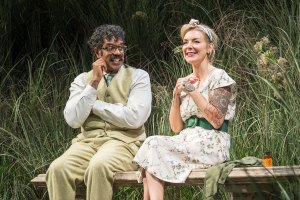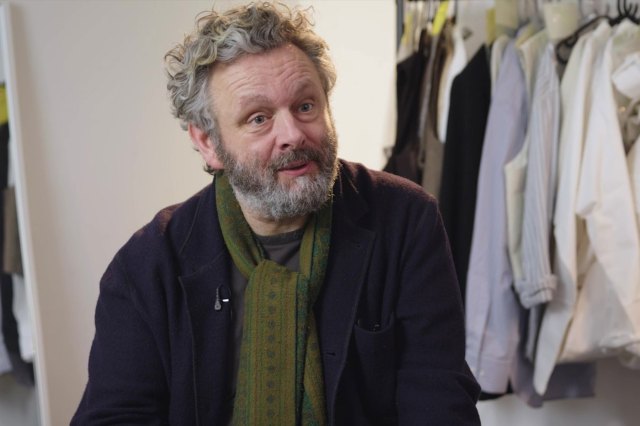Bebe Cave: The creative industry can be brutal place for your self-esteem without a support network
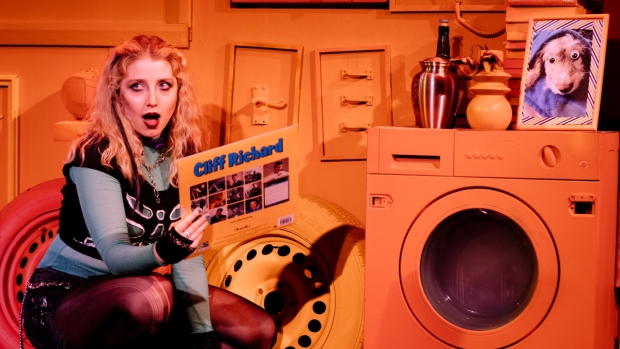
© Helen Murray
Bebe Cave has a wealth of stage and screen credits to her name, and also hosts a pretty fantastic podcast, We Can’t Talk About That Right Now, with her sister Jessie. She’s now taking on a brand new challenge – appearing solo in Lewis Cornay’s solo show Daddy Issues, which bows at Seven Dials Playhouse in central London this week. She spills the beans.
Explain ”Daddy Issues subject matter – is it exactly what it says on the tin?”’
Daddy Issues is a play about Imi, an intense young woman who really loves (and hates) her dad! Whilst the play really highlights their relationship, and the almost idolisation she has of her father – I think it also addresses her desire to understand herself better, as she faces adult life without him.
What was it that first drew you to Lewis’ script and how did you get involved in the project?
I was completely hooked by Lewis’ script when I was sent it to audition. It felt like reading my own intrusive thoughts – in a good way! We fortunately have a very similar sense of humour. I think his ability to find lightness and comedy in the despair of Imi really resonated with my own experiences of grief. Sometimes when you are having the lowest times of your life but the world keeps turning, the mundane can become really absurd. My family and I lost my brother Ben in 2019, and when I read this script I felt such immediate empathy for Imi. She is only one year in to the lifelong journey of grief, and at that point in my experience I was similarly confused and clueless. But things do get easier over time, which I wish I could tell her! Getting the chance to explore this character at this intense moment in her life has been a very cathartic experience. It has helped me to understand my own relationship with grief, and the ways it changes your life forever.
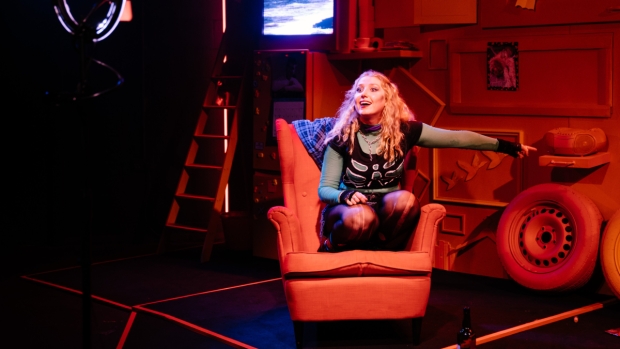
© Helen Murray
You have some pretty stellar credits on both screen and stage – in what ways do you think you approach the two mediums differently?
I was very lucky to perform in the theatre when I was a teenager, but it has been a while since I last had the chance to revisit the stage. I would be lying if I said that I knew (or remembered) exactly how to approach this medium when I first started our rehearsal process – as it is a very intimate script which almost feels like I could be speaking to one person. I think that my experience working on screen, and the naturalism that it requires, has been a useful asset for this particular show.
Obviously performance (and podcasting!) has been a big family affair for you – in what ways do you think those around you provide creative prompts and inspiration for your endeavours?
The creative industry can be a very brutal place for your self-esteem if you lack a support network. I am so grateful to my family for always providing me with support and encouragement even when times have been tough. Even if I haven’t believed in myself, they always have! And the best part of getting to do any job is knowing that my mum will be able to come and see it, and that I can share the experience and the joy with her. And my sister and my brothers and my dad! And my sister’s and brother’s children. There really are a lot of us.
Can you describe the process of rehearsing Lewis’ solo show – what have you learnt about yourself as an artist along the way?
The team involved in this project are some of the coolest and most emotionally intelligent people I have ever worked with. I was quite intimidated before starting the rehearsals, and definitely felt a bit of ‘imposter syndrome’ at the thought of being the only person on stage for an hour. However, the encouragement and support I have received in this process has been just incredible. My director Jane Moriarty has such a delicate yet focused way of guiding me through the text, and thanks to the generosity of Lewis and everyone else – our rehearsal room has become such a collaborative and open space to share new ideas about the show (and gossip endlessly). I have been able to let go of the idea that you have to be a ‘certain type’ of actor to pull off a show like this, or that I don’t have enough training or technique to embody this character. I also now love doing the really loud and silly warm up exercises with the assistant director Gabrielle Scawthorne that initially I found very embarrassing to do. That’s growth!
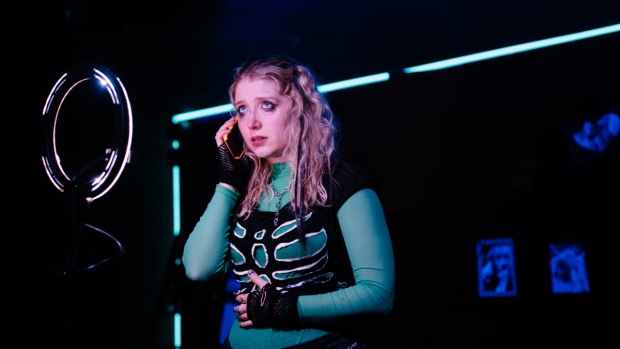
© Helen Murray
Seeing as people in their early 20s are coming out of lockdowns and long periods of isolation, the issues facing the character of Imi must feel quite pertinent?
I think Imi’s desperation to be seen online and validated for her existence is a very common desire amongst young people. Speaking to the audience inside of her phone is a much more controlled environment than reaching out to peers in her real life. When you have been suffering loneliness for a while, I think it makes sense that the online community would seem an inviting place. It provides instant gratification, it gives you the option of anonymity, and it doesn’t forces you to actually risk seeing another person face to face and being rejected. Whilst researching this character, I’ve been very drawn to the world of TikTok livestreams. It’s quite fascinating to scroll through and see lots of people sitting alone quietly in their bedrooms, responding to comments they’ve been sent, often forcing laughter as if they’re having a great time, but in their eyes you can see they are always searching for the next comment or question from a stranger which might just make them feel a little bit better.











